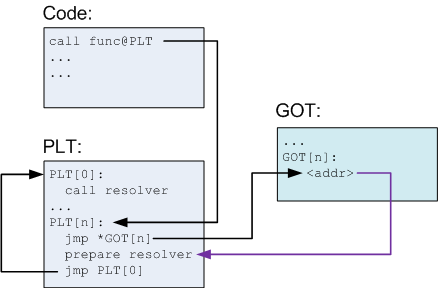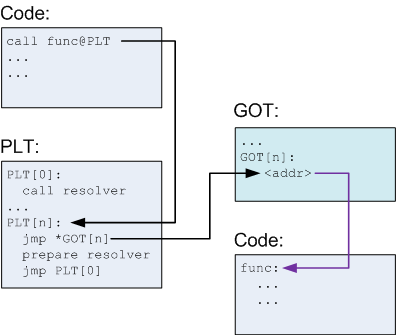(这一点是我本人的错误认识,我一直以为证书需要自我签名,不知道从哪里得到的如此愚顽的愚蠢想法?证明的方法是很trivial的,比如,先使用openssl x509 -in wikipedia.crt -C -noout,然后使用mc打开搜索hex就证明了它的确是明文根式文件而已。)
openssl x509 -in wikipedia.crt -C -noout
/* subject:/C=US/ST=California/L=San Francisco/O=Wikimedia Foundation, Inc./CN=*.wikipedia.org */
/* issuer :/C=BE/O=GlobalSign nv-sa/CN=GlobalSign Organization Validation CA - SHA256 - G2 */
unsigned char XXX_subject_name[123]={
0x30,0x79,0x31,0x0B,0x30,0x09,0x06,0x03,0x55,0x04,0x06,0x13,0x02,0x55,0x53,0x31,
0x13,0x30,0x11,0x06,0x03,0x55,0x04,0x08,0x13,0x0A,0x43,0x61,0x6C,0x69,0x66,0x6F,
0x72,0x6E,0x69,0x61,0x31,0x16,0x30,0x14,0x06,0x03,0x55,0x04,0x07,0x13,0x0D,0x53,
0x61,0x6E,0x20,0x46,0x72,0x61,0x6E,0x63,0x69,0x73,0x63,0x6F,0x31,0x23,0x30,0x21,
0x06,0x03,0x55,0x04,0x0A,0x13,0x1A,0x57,0x69,0x6B,0x69,0x6D,0x65,0x64,0x69,0x61,
0x20,0x46,0x6F,0x75,0x6E,0x64,0x61,0x74,0x69,0x6F,0x6E,0x2C,0x20,0x49,0x6E,0x63,
0x2E,0x31,0x18,0x30,0x16,0x06,0x03,0x55,0x04,0x03,0x0C,0x0F,0x2A,0x2E,0x77,0x69,
0x6B,0x69,0x70,0x65,0x64,0x69,0x61,0x2E,0x6F,0x72,0x67,
};
unsigned char XXX_public_key[91]={
0x30,0x59,0x30,0x13,0x06,0x07,0x2A,0x86,0x48,0xCE,0x3D,0x02,0x01,0x06,0x08,0x2A,
0x86,0x48,0xCE,0x3D,0x03,0x01,0x07,0x03,0x42,0x00,0x04,0xEF,0x53,0x4D,0xF8,0x6F,
0xB7,0x72,0xB2,0x45,0xA2,0x0D,0x29,0x84,0x1C,0xAE,0xDE,0x04,0xEE,0x16,0x88,0x8B,
0xC1,0x3D,0xE8,0xB6,0x23,0xA9,0x75,0x72,0x71,0xA4,0xD1,0x1F,0x46,0x03,0x33,0x22,
0xF5,0x72,0x56,0x3F,0xDF,0x1F,0x2B,0x93,0xD2,0x41,0xB7,0x39,0xF9,0x74,0x4F,0x20,
0x0A,0x1D,0xE9,0xC0,0x47,0x89,0x80,0x0B,0x5F,0x68,0x03,
};
unsigned char XXX_certificate[2393]={
0x30,0x82,0x09,0x55,0x30,0x82,0x08,0x3D,0xA0,0x03,0x02,0x01,0x02,0x02,0x0C,0x09,
0xDE,0x73,0x4B,0x91,0x75,0x4C,0x18,0x79,0xC0,0xAE,0x4E,0x30,0x0D,0x06,0x09,0x2A,
0x86,0x48,0x86,0xF7,0x0D,0x01,0x01,0x0B,0x05,0x00,0x30,0x66,0x31,0x0B,0x30,0x09,
0x06,0x03,0x55,0x04,0x06,0x13,0x02,0x42,0x45,0x31,0x19,0x30,0x17,0x06,0x03,0x55,
0x04,0x0A,0x13,0x10,0x47,0x6C,0x6F,0x62,0x61,0x6C,0x53,0x69,0x67,0x6E,0x20,0x6E,
0x76,0x2D,0x73,0x61,0x31,0x3C,0x30,0x3A,0x06,0x03,0x55,0x04,0x03,0x13,0x33,0x47,
0x6C,0x6F,0x62,0x61,0x6C,0x53,0x69,0x67,0x6E,0x20,0x4F,0x72,0x67,0x61,0x6E,0x69,
0x7A,0x61,0x74,0x69,0x6F,0x6E,0x20,0x56,0x61,0x6C,0x69,0x64,0x61,0x74,0x69,0x6F,
0x6E,0x20,0x43,0x41,0x20,0x2D,0x20,0x53,0x48,0x41,0x32,0x35,0x36,0x20,0x2D,0x20,
0x47,0x32,0x30,0x1E,0x17,0x0D,0x31,0x37,0x31,0x31,0x30,0x33,0x30,0x33,0x34,0x32,
0x30,0x32,0x5A,0x17,0x0D,0x31,0x38,0x31,0x31,0x32,0x32,0x30,0x37,0x35,0x39,0x35,
0x39,0x5A,0x30,0x79,0x31,0x0B,0x30,0x09,0x06,0x03,0x55,0x04,0x06,0x13,0x02,0x55,
0x53,0x31,0x13,0x30,0x11,0x06,0x03,0x55,0x04,0x08,0x13,0x0A,0x43,0x61,0x6C,0x69,
0x66,0x6F,0x72,0x6E,0x69,0x61,0x31,0x16,0x30,0x14,0x06,0x03,0x55,0x04,0x07,0x13,
0x0D,0x53,0x61,0x6E,0x20,0x46,0x72,0x61,0x6E,0x63,0x69,0x73,0x63,0x6F,0x31,0x23,
0x30,0x21,0x06,0x03,0x55,0x04,0x0A,0x13,0x1A,0x57,0x69,0x6B,0x69,0x6D,0x65,0x64,
0x69,0x61,0x20,0x46,0x6F,0x75,0x6E,0x64,0x61,0x74,0x69,0x6F,0x6E,0x2C,0x20,0x49,
0x6E,0x63,0x2E,0x31,0x18,0x30,0x16,0x06,0x03,0x55,0x04,0x03,0x0C,0x0F,0x2A,0x2E,
0x77,0x69,0x6B,0x69,0x70,0x65,0x64,0x69,0x61,0x2E,0x6F,0x72,0x67,0x30,0x59,0x30,
0x13,0x06,0x07,0x2A,0x86,0x48,0xCE,0x3D,0x02,0x01,0x06,0x08,0x2A,0x86,0x48,0xCE,
0x3D,0x03,0x01,0x07,0x03,0x42,0x00,0x04,0xEF,0x53,0x4D,0xF8,0x6F,0xB7,0x72,0xB2,
0x45,0xA2,0x0D,0x29,0x84,0x1C,0xAE,0xDE,0x04,0xEE,0x16,0x88,0x8B,0xC1,0x3D,0xE8,
0xB6,0x23,0xA9,0x75,0x72,0x71,0xA4,0xD1,0x1F,0x46,0x03,0x33,0x22,0xF5,0x72,0x56,
0x3F,0xDF,0x1F,0x2B,0x93,0xD2,0x41,0xB7,0x39,0xF9,0x74,0x4F,0x20,0x0A,0x1D,0xE9,
0xC0,0x47,0x89,0x80,0x0B,0x5F,0x68,0x03,0xA3,0x82,0x06,0xB9,0x30,0x82,0x06,0xB5,
0x30,0x0E,0x06,0x03,0x55,0x1D,0x0F,0x01,0x01,0xFF,0x04,0x04,0x03,0x02,0x03,0x88,
0x30,0x81,0xA0,0x06,0x08,0x2B,0x06,0x01,0x05,0x05,0x07,0x01,0x01,0x04,0x81,0x93,
0x30,0x81,0x90,0x30,0x4D,0x06,0x08,0x2B,0x06,0x01,0x05,0x05,0x07,0x30,0x02,0x86,
0x41,0x68,0x74,0x74,0x70,0x3A,0x2F,0x2F,0x73,0x65,0x63,0x75,0x72,0x65,0x2E,0x67,
0x6C,0x6F,0x62,0x61,0x6C,0x73,0x69,0x67,0x6E,0x2E,0x63,0x6F,0x6D,0x2F,0x63,0x61,
0x63,0x65,0x72,0x74,0x2F,0x67,0x73,0x6F,0x72,0x67,0x61,0x6E,0x69,0x7A,0x61,0x74,
0x69,0x6F,0x6E,0x76,0x61,0x6C,0x73,0x68,0x61,0x32,0x67,0x32,0x72,0x31,0x2E,0x63,
0x72,0x74,0x30,0x3F,0x06,0x08,0x2B,0x06,0x01,0x05,0x05,0x07,0x30,0x01,0x86,0x33,
0x68,0x74,0x74,0x70,0x3A,0x2F,0x2F,0x6F,0x63,0x73,0x70,0x32,0x2E,0x67,0x6C,0x6F,
0x62,0x61,0x6C,0x73,0x69,0x67,0x6E,0x2E,0x63,0x6F,0x6D,0x2F,0x67,0x73,0x6F,0x72,
0x67,0x61,0x6E,0x69,0x7A,0x61,0x74,0x69,0x6F,0x6E,0x76,0x61,0x6C,0x73,0x68,0x61,
0x32,0x67,0x32,0x30,0x56,0x06,0x03,0x55,0x1D,0x20,0x04,0x4F,0x30,0x4D,0x30,0x41,
0x06,0x09,0x2B,0x06,0x01,0x04,0x01,0xA0,0x32,0x01,0x14,0x30,0x34,0x30,0x32,0x06,
0x08,0x2B,0x06,0x01,0x05,0x05,0x07,0x02,0x01,0x16,0x26,0x68,0x74,0x74,0x70,0x73,
0x3A,0x2F,0x2F,0x77,0x77,0x77,0x2E,0x67,0x6C,0x6F,0x62,0x61,0x6C,0x73,0x69,0x67,
0x6E,0x2E,0x63,0x6F,0x6D,0x2F,0x72,0x65,0x70,0x6F,0x73,0x69,0x74,0x6F,0x72,0x79,
0x2F,0x30,0x08,0x06,0x06,0x67,0x81,0x0C,0x01,0x02,0x02,0x30,0x09,0x06,0x03,0x55,
0x1D,0x13,0x04,0x02,0x30,0x00,0x30,0x49,0x06,0x03,0x55,0x1D,0x1F,0x04,0x42,0x30,
0x40,0x30,0x3E,0xA0,0x3C,0xA0,0x3A,0x86,0x38,0x68,0x74,0x74,0x70,0x3A,0x2F,0x2F,
0x63,0x72,0x6C,0x2E,0x67,0x6C,0x6F,0x62,0x61,0x6C,0x73,0x69,0x67,0x6E,0x2E,0x63,
0x6F,0x6D,0x2F,0x67,0x73,0x2F,0x67,0x73,0x6F,0x72,0x67,0x61,0x6E,0x69,0x7A,0x61,
0x74,0x69,0x6F,0x6E,0x76,0x61,0x6C,0x73,0x68,0x61,0x32,0x67,0x32,0x2E,0x63,0x72,
0x6C,0x30,0x82,0x02,0xF8,0x06,0x03,0x55,0x1D,0x11,0x04,0x82,0x02,0xEF,0x30,0x82,
0x02,0xEB,0x82,0x0F,0x2A,0x2E,0x77,0x69,0x6B,0x69,0x70,0x65,0x64,0x69,0x61,0x2E,
0x6F,0x72,0x67,0x82,0x11,0x2A,0x2E,0x6D,0x2E,0x6D,0x65,0x64,0x69,0x61,0x77,0x69,
0x6B,0x69,0x2E,0x6F,0x72,0x67,0x82,0x11,0x2A,0x2E,0x6D,0x2E,0x77,0x69,0x6B,0x69,
0x62,0x6F,0x6F,0x6B,0x73,0x2E,0x6F,0x72,0x67,0x82,0x10,0x2A,0x2E,0x6D,0x2E,0x77,
0x69,0x6B,0x69,0x64,0x61,0x74,0x61,0x2E,0x6F,0x72,0x67,0x82,0x11,0x2A,0x2E,0x6D,
0x2E,0x77,0x69,0x6B,0x69,0x6D,0x65,0x64,0x69,0x61,0x2E,0x6F,0x72,0x67,0x82,0x1B,
0x2A,0x2E,0x6D,0x2E,0x77,0x69,0x6B,0x69,0x6D,0x65,0x64,0x69,0x61,0x66,0x6F,0x75,
0x6E,0x64,0x61,0x74,0x69,0x6F,0x6E,0x2E,0x6F,0x72,0x67,0x82,0x10,0x2A,0x2E,0x6D,
0x2E,0x77,0x69,0x6B,0x69,0x6E,0x65,0x77,0x73,0x2E,0x6F,0x72,0x67,0x82,0x11,0x2A,
0x2E,0x6D,0x2E,0x77,0x69,0x6B,0x69,0x70,0x65,0x64,0x69,0x61,0x2E,0x6F,0x72,0x67,
0x82,0x11,0x2A,0x2E,0x6D,0x2E,0x77,0x69,0x6B,0x69,0x71,0x75,0x6F,0x74,0x65,0x2E,
0x6F,0x72,0x67,0x82,0x12,0x2A,0x2E,0x6D,0x2E,0x77,0x69,0x6B,0x69,0x73,0x6F,0x75,
0x72,0x63,0x65,0x2E,0x6F,0x72,0x67,0x82,0x13,0x2A,0x2E,0x6D,0x2E,0x77,0x69,0x6B,
0x69,0x76,0x65,0x72,0x73,0x69,0x74,0x79,0x2E,0x6F,0x72,0x67,0x82,0x12,0x2A,0x2E,
0x6D,0x2E,0x77,0x69,0x6B,0x69,0x76,0x6F,0x79,0x61,0x67,0x65,0x2E,0x6F,0x72,0x67,
0x82,0x12,0x2A,0x2E,0x6D,0x2E,0x77,0x69,0x6B,0x74,0x69,0x6F,0x6E,0x61,0x72,0x79,
0x2E,0x6F,0x72,0x67,0x82,0x0F,0x2A,0x2E,0x6D,0x65,0x64,0x69,0x61,0x77,0x69,0x6B,
0x69,0x2E,0x6F,0x72,0x67,0x82,0x16,0x2A,0x2E,0x70,0x6C,0x61,0x6E,0x65,0x74,0x2E,
0x77,0x69,0x6B,0x69,0x6D,0x65,0x64,0x69,0x61,0x2E,0x6F,0x72,0x67,0x82,0x0F,0x2A,
0x2E,0x77,0x69,0x6B,0x69,0x62,0x6F,0x6F,0x6B,0x73,0x2E,0x6F,0x72,0x67,0x82,0x0E,
0x2A,0x2E,0x77,0x69,0x6B,0x69,0x64,0x61,0x74,0x61,0x2E,0x6F,0x72,0x67,0x82,0x0F,
0x2A,0x2E,0x77,0x69,0x6B,0x69,0x6D,0x65,0x64,0x69,0x61,0x2E,0x6F,0x72,0x67,0x82,
0x19,0x2A,0x2E,0x77,0x69,0x6B,0x69,0x6D,0x65,0x64,0x69,0x61,0x66,0x6F,0x75,0x6E,
0x64,0x61,0x74,0x69,0x6F,0x6E,0x2E,0x6F,0x72,0x67,0x82,0x0E,0x2A,0x2E,0x77,0x69,
0x6B,0x69,0x6E,0x65,0x77,0x73,0x2E,0x6F,0x72,0x67,0x82,0x0F,0x2A,0x2E,0x77,0x69,
0x6B,0x69,0x71,0x75,0x6F,0x74,0x65,0x2E,0x6F,0x72,0x67,0x82,0x10,0x2A,0x2E,0x77,
0x69,0x6B,0x69,0x73,0x6F,0x75,0x72,0x63,0x65,0x2E,0x6F,0x72,0x67,0x82,0x11,0x2A,
0x2E,0x77,0x69,0x6B,0x69,0x76,0x65,0x72,0x73,0x69,0x74,0x79,0x2E,0x6F,0x72,0x67,
0x82,0x10,0x2A,0x2E,0x77,0x69,0x6B,0x69,0x76,0x6F,0x79,0x61,0x67,0x65,0x2E,0x6F,
0x72,0x67,0x82,0x10,0x2A,0x2E,0x77,0x69,0x6B,0x74,0x69,0x6F,0x6E,0x61,0x72,0x79,
0x2E,0x6F,0x72,0x67,0x82,0x14,0x2A,0x2E,0x77,0x6D,0x66,0x75,0x73,0x65,0x72,0x63,
0x6F,0x6E,0x74,0x65,0x6E,0x74,0x2E,0x6F,0x72,0x67,0x82,0x14,0x2A,0x2E,0x7A,0x65,
0x72,0x6F,0x2E,0x77,0x69,0x6B,0x69,0x70,0x65,0x64,0x69,0x61,0x2E,0x6F,0x72,0x67,
0x82,0x0D,0x6D,0x65,0x64,0x69,0x61,0x77,0x69,0x6B,0x69,0x2E,0x6F,0x72,0x67,0x82,
0x06,0x77,0x2E,0x77,0x69,0x6B,0x69,0x82,0x0D,0x77,0x69,0x6B,0x69,0x62,0x6F,0x6F,
0x6B,0x73,0x2E,0x6F,0x72,0x67,0x82,0x0C,0x77,0x69,0x6B,0x69,0x64,0x61,0x74,0x61,
0x2E,0x6F,0x72,0x67,0x82,0x0D,0x77,0x69,0x6B,0x69,0x6D,0x65,0x64,0x69,0x61,0x2E,
0x6F,0x72,0x67,0x82,0x17,0x77,0x69,0x6B,0x69,0x6D,0x65,0x64,0x69,0x61,0x66,0x6F,
0x75,0x6E,0x64,0x61,0x74,0x69,0x6F,0x6E,0x2E,0x6F,0x72,0x67,0x82,0x0C,0x77,0x69,
0x6B,0x69,0x6E,0x65,0x77,0x73,0x2E,0x6F,0x72,0x67,0x82,0x0D,0x77,0x69,0x6B,0x69,
0x71,0x75,0x6F,0x74,0x65,0x2E,0x6F,0x72,0x67,0x82,0x0E,0x77,0x69,0x6B,0x69,0x73,
0x6F,0x75,0x72,0x63,0x65,0x2E,0x6F,0x72,0x67,0x82,0x0F,0x77,0x69,0x6B,0x69,0x76,
0x65,0x72,0x73,0x69,0x74,0x79,0x2E,0x6F,0x72,0x67,0x82,0x0E,0x77,0x69,0x6B,0x69,
0x76,0x6F,0x79,0x61,0x67,0x65,0x2E,0x6F,0x72,0x67,0x82,0x0E,0x77,0x69,0x6B,0x74,
0x69,0x6F,0x6E,0x61,0x72,0x79,0x2E,0x6F,0x72,0x67,0x82,0x12,0x77,0x6D,0x66,0x75,
0x73,0x65,0x72,0x63,0x6F,0x6E,0x74,0x65,0x6E,0x74,0x2E,0x6F,0x72,0x67,0x82,0x0D,
0x77,0x69,0x6B,0x69,0x70,0x65,0x64,0x69,0x61,0x2E,0x6F,0x72,0x67,0x30,0x1D,0x06,
0x03,0x55,0x1D,0x25,0x04,0x16,0x30,0x14,0x06,0x08,0x2B,0x06,0x01,0x05,0x05,0x07,
0x03,0x01,0x06,0x08,0x2B,0x06,0x01,0x05,0x05,0x07,0x03,0x02,0x30,0x1D,0x06,0x03,
0x55,0x1D,0x0E,0x04,0x16,0x04,0x14,0xBC,0x93,0xB7,0x81,0xF9,0x8E,0x73,0x79,0xE8,
0x57,0x77,0xFF,0xBB,0x2D,0x96,0x32,0x72,0x37,0xA5,0x85,0x30,0x1F,0x06,0x03,0x55,
0x1D,0x23,0x04,0x18,0x30,0x16,0x80,0x14,0x96,0xDE,0x61,0xF1,0xBD,0x1C,0x16,0x29,
0x53,0x1C,0xC0,0xCC,0x7D,0x3B,0x83,0x00,0x40,0xE6,0x1A,0x7C,0x30,0x82,0x01,0xF5,
0x06,0x0A,0x2B,0x06,0x01,0x04,0x01,0xD6,0x79,0x02,0x04,0x02,0x04,0x82,0x01,0xE5,
0x04,0x82,0x01,0xE1,0x01,0xDF,0x00,0x75,0x00,0xDD,0xEB,0x1D,0x2B,0x7A,0x0D,0x4F,
0xA6,0x20,0x8B,0x81,0xAD,0x81,0x68,0x70,0x7E,0x2E,0x8E,0x9D,0x01,0xD5,0x5C,0x88,
0x8D,0x3D,0x11,0xC4,0xCD,0xB6,0xEC,0xBE,0xCC,0x00,0x00,0x01,0x5F,0x7F,0xF8,0xAA,
0x82,0x00,0x00,0x04,0x03,0x00,0x46,0x30,0x44,0x02,0x20,0x38,0x14,0x02,0xD7,0xF3,
0x55,0xD6,0x30,0x01,0xF4,0x64,0xFE,0x12,0x84,0x5E,0x32,0x6E,0xE1,0xD5,0x01,0x05,
0xC3,0xF1,0x50,0x5D,0x51,0xD1,0x20,0x29,0x7D,0xA6,0xF7,0x02,0x20,0x58,0xC1,0x8D,
0x46,0x4A,0xED,0xBA,0xA1,0xD9,0x05,0xA9,0x0B,0x17,0x83,0x51,0xF8,0x1E,0x69,0xAE,
0x4E,0xA9,0xD8,0x97,0xC7,0x68,0xC2,0x4E,0x60,0xD3,0x7B,0xF5,0xE4,0x00,0x76,0x00,
0x56,0x14,0x06,0x9A,0x2F,0xD7,0xC2,0xEC,0xD3,0xF5,0xE1,0xBD,0x44,0xB2,0x3E,0xC7,
0x46,0x76,0xB9,0xBC,0x99,0x11,0x5C,0xC0,0xEF,0x94,0x98,0x55,0xD6,0x89,0xD0,0xDD,
0x00,0x00,0x01,0x5F,0x7F,0xF8,0xAA,0xDA,0x00,0x00,0x04,0x03,0x00,0x47,0x30,0x45,
0x02,0x20,0x0C,0xCD,0x09,0xDE,0x5C,0xEA,0xE9,0xC9,0x7E,0x74,0x64,0xF3,0x1D,0xC5,
0x72,0x19,0x26,0x6F,0x92,0x28,0x9C,0xD0,0x1A,0x67,0x43,0xA0,0x38,0x75,0x13,0x7E,
0xC1,0x23,0x02,0x21,0x00,0x9B,0x01,0x9F,0xAD,0xC8,0x6F,0x07,0xF1,0xD0,0x3E,0x89,
0xDF,0xC9,0xD6,0x6E,0xBD,0xE1,0xAE,0xE7,0x68,0x30,0xD1,0x5F,0x34,0x48,0x56,0xD5,
0x50,0xF3,0x7F,0x81,0x8B,0x00,0x76,0x00,0xA4,0xB9,0x09,0x90,0xB4,0x18,0x58,0x14,
0x87,0xBB,0x13,0xA2,0xCC,0x67,0x70,0x0A,0x3C,0x35,0x98,0x04,0xF9,0x1B,0xDF,0xB8,
0xE3,0x77,0xCD,0x0E,0xC8,0x0D,0xDC,0x10,0x00,0x00,0x01,0x5F,0x7F,0xF8,0xAD,0x4A,
0x00,0x00,0x04,0x03,0x00,0x47,0x30,0x45,0x02,0x20,0x3E,0x27,0x0F,0xB4,0xED,0x7C,
0xC4,0x6E,0x81,0x8B,0xFB,0x60,0x7C,0x5A,0xB7,0xFC,0x67,0xDA,0x50,0x5B,0x3E,0x53,
0xED,0x54,0x19,0x4F,0xA3,0xB7,0x75,0x40,0xC8,0xBC,0x02,0x21,0x00,0xC2,0x0D,0x4D,
0xD0,0xA0,0x00,0x6A,0x95,0x0A,0x21,0x17,0x32,0xD7,0xCB,0xB9,0xDF,0x9A,0x8E,0x23,
0x19,0xBA,0x71,0x59,0x9E,0xCF,0xC3,0x28,0x8E,0x53,0x52,0x0E,0xF8,0x00,0x76,0x00,
0xEE,0x4B,0xBD,0xB7,0x75,0xCE,0x60,0xBA,0xE1,0x42,0x69,0x1F,0xAB,0xE1,0x9E,0x66,
0xA3,0x0F,0x7E,0x5F,0xB0,0x72,0xD8,0x83,0x00,0xC4,0x7B,0x89,0x7A,0xA8,0xFD,0xCB,
0x00,0x00,0x01,0x5F,0x7F,0xF8,0xB0,0x31,0x00,0x00,0x04,0x03,0x00,0x47,0x30,0x45,
0x02,0x21,0x00,0x91,0x26,0x1E,0x19,0xFF,0x66,0xC6,0x67,0xE5,0x54,0x57,0xBE,0x11,
0x7C,0xFA,0x10,0x3A,0x68,0xF8,0x38,0x42,0x10,0x6D,0x77,0x09,0xCA,0xB4,0xEF,0xE2,
0xCA,0xE6,0x37,0x02,0x20,0x11,0xC5,0xA3,0xDB,0x0B,0x58,0x3D,0xCD,0x2D,0xC6,0x74,
0x45,0x63,0x9D,0x68,0x26,0x9D,0x73,0x8C,0x30,0x96,0x8C,0x30,0x1F,0x89,0xE1,0x40,
0x6B,0x08,0x56,0x01,0x1F,0x30,0x0D,0x06,0x09,0x2A,0x86,0x48,0x86,0xF7,0x0D,0x01,
0x01,0x0B,0x05,0x00,0x03,0x82,0x01,0x01,0x00,0x51,0x1E,0x84,0x93,0x2E,0x72,0x35,
0x97,0x9B,0x2E,0x89,0x3C,0x54,0x07,0xA9,0x95,0xAF,0xAE,0xB4,0x78,0x97,0xA9,0x83,
0xE5,0x4D,0x69,0x48,0x0B,0x33,0x52,0x6D,0xEF,0x98,0x32,0x5B,0x47,0x95,0x93,0x9B,
0xFE,0xEF,0x16,0x92,0x7C,0x80,0x07,0x89,0x9C,0xC6,0xD1,0xAB,0x9B,0xE7,0x63,0x40,
0x2E,0xC5,0x39,0x20,0x65,0xB5,0xDD,0x43,0x0B,0x82,0x4A,0x7D,0xE0,0x3E,0xB5,0x5F,
0x1F,0xC2,0xD7,0x71,0x0E,0x4E,0xDC,0x2C,0xAB,0x86,0xAC,0xA6,0xB5,0x70,0x9E,0x88,
0xDC,0x6B,0xEE,0x5E,0x04,0x95,0x97,0x6F,0xE0,0xC6,0x59,0x6A,0x7B,0x1B,0xC9,0xA7,
0xA6,0xA4,0xE0,0xA0,0x81,0x55,0xD6,0x6C,0xAA,0xD0,0x6B,0x99,0x98,0x8C,0xCF,0x0F,
0xC3,0x44,0x77,0x2A,0xF9,0x43,0x87,0xC6,0x67,0x66,0x3F,0x0E,0xE3,0x9E,0x24,0xC6,
0xAD,0xFB,0x6D,0x49,0xF6,0x0D,0x96,0xE6,0xF4,0x70,0xDC,0x9D,0xAA,0x4D,0xD5,0xD2,
0xF8,0xF1,0xEA,0x33,0x6C,0x83,0x49,0x96,0x66,0xC5,0x37,0x83,0x12,0x1D,0xD8,0x08,
0x00,0x97,0xA5,0xE8,0xE1,0x2B,0x31,0x86,0x6A,0xD6,0x0B,0x2A,0xA1,0x89,0x63,0x48,
0xE0,0x90,0xFB,0x58,0xE1,0x32,0x6A,0x15,0xAD,0x3E,0x56,0xC6,0x95,0xDB,0x6D,0x04,
0xCD,0x3E,0x94,0x58,0xF6,0x38,0x64,0xD5,0x6F,0x4D,0xA0,0xE3,0x98,0x32,0x7E,0x78,
0x52,0xD5,0xFA,0xC0,0x95,0x7B,0xA5,0x62,0xE5,0x1D,0xF4,0x72,0x93,0x59,0x28,0x44,
0x46,0xE7,0x19,0x5A,0xC7,0x12,0x90,0x54,0x06,0x26,0x15,0x7A,0x18,0x8A,0x51,0xF4,
0x6C,0x9E,0xB3,0x18,0x79,0x9A,0x2A,0x35,0x08,
};


